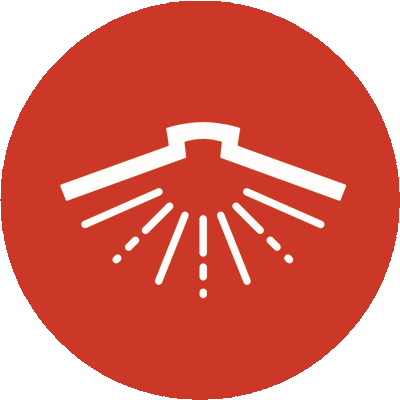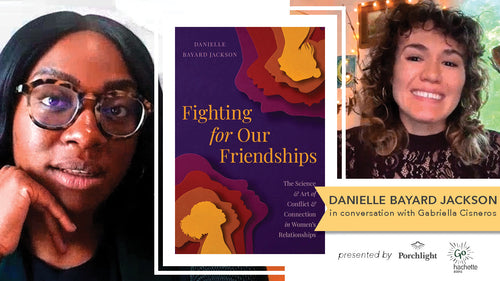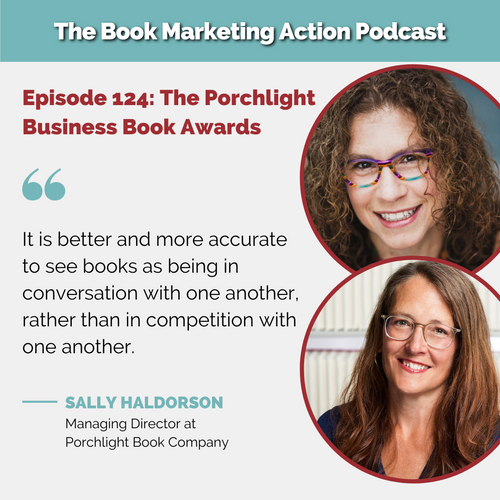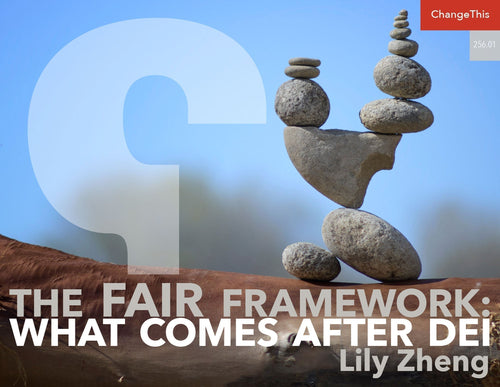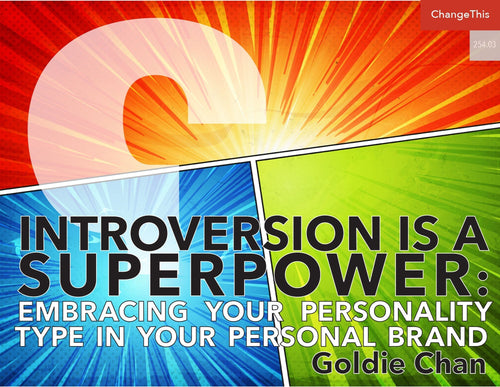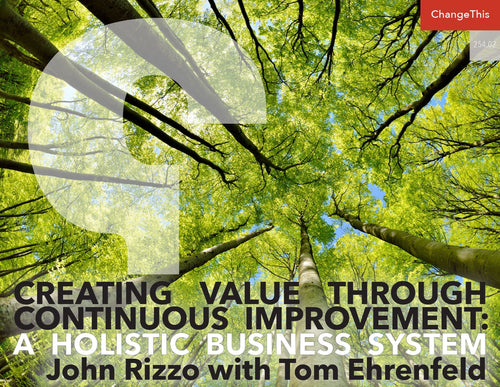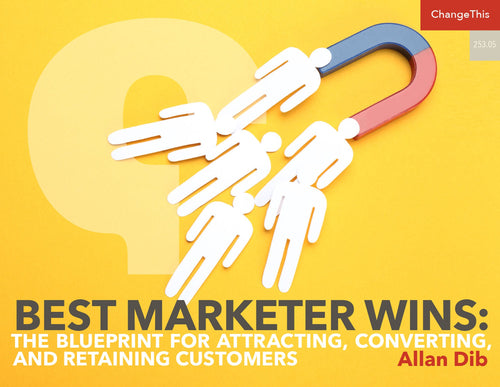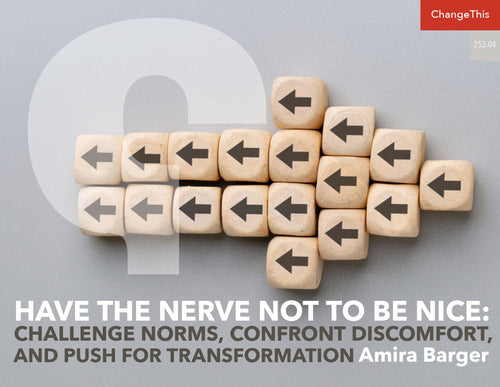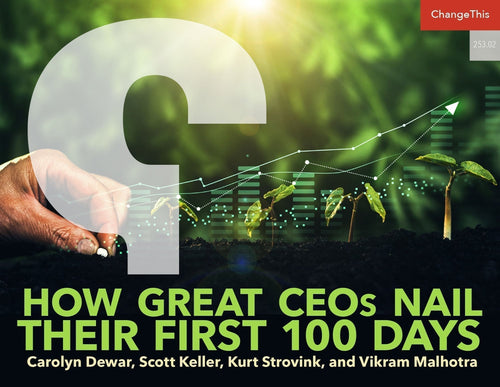There Are No Strangers Here: A Rising Tribe Lifts All Boats
"I did truly believe that my story was emblematic of the cumulative work all feminists have labored under with every act that inches us toward equality, and emblematic of the struggles all professional women face as we labor toward our dreams. I had my life, and I had my work, and I was simultaneously blessed and burdened by the effort to maximize the potential of both."
There are no strangers here; Only friends you haven’t yet met. —William Butler Yeats
I fussed over my outfit for that first meeting of the Rising Tide Salon. What should this lifelong Midwesterner (read: casual dress aficionado) wear to a business lunch with five astoundingly successful women she’s never met in early spring in New York during a warm spell? My options were limited. New clothes had become a luxury since my husband was unable to work since his diagnosis of leukemia almost two years earlier. His disability payments only just covered our COBRA health insurance payments, insurance we’d very much needed, and my salary paid the rest of the bills.
Why all this focus on my appearance? I’d like to say I’m above concern for the kind of first impression I’m apt to make, but that would be false. And I could claim that I don’t care what people think of my exterior, but that would also be untrue. An embarrassing thing to admit, but social events can still make this 45-year-old feminist feel like an insecure fifteen-year-old going to her first prom. If I couldn’t source some confidence from inside myself, I would rely on my clothing to help me fake it until I felt it.
The invitation had arrived in my inbox from out of the blue. Sam Horn, author, consultant, and the organizer of the luncheon, had reached out to me with kudos for an article I’d written about the absence of women writers in the business book genre.
In that article, I laid out my intention, as general manager of of 800-CEO-READ, the leading experts on business books and keeper of the ChangeThis website, to make sure our company does more to promote books by women. That article was the impetus for Sam to invite me to her inaugural Rising Tide Salon which she’d organized in honor of Nell Merlino, founder of Take Our Daughters to Work Day, on her birthday. I knew of their work, but I didn’t know them yet.
I replied, “yes,” with much trepidation, but much encouragement from my coworkers. An opportunity loomed, and I determined to take advantage of it. My job rarely requires me to travel alone, so I could have been traveling to Mars, it felt so alien. The first business trip I ever took (also my first plane flight) came in my mid-twenties. I am from a family that thought vacation was driving two hours to one of the thousands of lakes in Minnesota and renting a boat from which to drop some lines and hope to hook a Northern. That kind of childhood primes a person to be an uncertain traveler; my inherent introversion makes me an awkward conversationalist. Nonetheless, I booked my flight and started to plan my wardrobe, maybe as a distraction from my nerves.
Only one other time in my life had I gotten on a plane by myself with the express purpose of meeting strangers. When my son began to display development delays just before he turned a year old, I went searching for answers on the internet. Probably I went searching for reassurance, but that’s not something the internet provides with much regularity. However, that search led me to an online forum, and there I found a village. Over the next two years, I got to know a group of women who had children with special needs, most a few years older than my son, who guided me through the miserable experience of learning and accepting that your child will not be the child you imagined, and, thus, your expectations of parenthood would never be met, but would, in some surprising ways, also exceed them.
When my son was three, I flew to Utah to join these women for a retreat in a rented house near Sundance. I had struggled to find a like community of moms in my city. Not all moms connect with other moms, certainly, because you need something in common beyond parenting to solidify a bond. But it’s all the more complicated connecting to another special needs mom because the difference between having, for example, a nonverbal child vs a non-mobile child is oceanic.
Arriving in Salt Lake City I wore an oversized green sweatshirt and brown cropped cargo pants for my “IRL” introduction to the group—perhaps as camouflage, so afraid I was to be seen. I was awkward then, and nervous, just as I am now. But during those four days, the twelve of us mothers, having traveled from as far-flung locales as Oregon, New York, Texas, and yes, Wisconsin, hiked a trail into the mountains, did yoga and meditation, drank margaritas or rum and Cokes, shopped, and talked. Mostly we talked. And cried.
And, maybe most importantly, we laughed. Finally, there was a safe space in which to tell black-humored jokes about the insensitive doctor who discussed institutionalization with you before your child’s fifth birthday, the ignorant do-gooders who gave unsolicited advice to you when your child “misbehaved” in public, the teacher who refused to change a “used” pull-up because it was the only way to teach your particular kind of child to use a toilet, the cashier who joked around with his coworker by calling him a “retard” while you stood there with your child waiting to pay your bill. These were not strangers, these women. Our experiences had made us kin before we’d ever met.
At the time, few of the kids were over 10 years old, and the wounds were fresh for all of us. But I was a rookie. I desperately needed reassurance that this was not the end of my particular hopes of obtaining professional success, making art, having a happy marriage, exploring my life’s potential. There was still so much I wanted to do, but my son required a kind of all-in parenting that threatened to snuff out my drive. I’d begun to feel suffocated beneath the burden of his special needs, and even more so, the expectation to become a “Mama Bear” at war with the world every minute of every day in defense of his place in it. I needed to know that even if there wasn’t light at the end of the tunnel, there was, at least, air.
Ten years later, and I am close friends with several of those exceptional women, regardless of distance, and all of us, to some degree or another, keep up to date on each other’s children via Facebook. I hesitate to call them mentors, because that word suggests a hierarchy, so I like to think of us more as a tribe. Of all the people on this earth, I know that should I need them, when I need them, they would come, because when I needed them, they did.
There would be six of us attending the luncheon, and my vitae was by far the slimmest. The night before, I sat on my hotel bed, laptop popped open, Google-searching the background information of the other women gathering. My earbuds fed me their podcast interviews while I read. Nell Merlino, a veritable cultural icon. Sam Horn, author of numerous business books, leader of a writer’s convention on Maui. We would be joined by an editor from a popular lifestyle magazine, a venture capitalist pushing the boundaries of which industries women entrepreneurs could succeed in, a woman who had guided a significant wing of a significant cable network, and an author of nearly 20 books and considered one of the most influential female nonfiction authors since the ’70s.
What on earth could I bring to the conversation? Yes, I was a feminist, and I was the first female general manager of our company, a company with a platform I could to some degree leverage to support women writers. I was a writer myself, but with limited publications. I was a working mother. We had commonalities, but my accomplishments were less significant. I certainly didn’t feel like my work or my voice had, like these other great women, made a dent in the workings of the world. Sam had named this gathering the “Rising Tide Salon” and I wanted to believe my drop in the ocean had helped in even the smallest way to create a swell of progress for women, but I wasn’t sure I believed it. Was I just suffering from imposter syndrome or would I really be a fish-out-of-water?
I wore a sleeveless dress from Target, but added a cashmere shawl for a touch of class. Since I’m self-conscious about my arms, and my inclination to get overwarm when nervous, the scarf afforded me maneuverable coverage on both fronts as I battled my nerves. As I set out from my hotel into the unusually warm spring sunshine, walking in the way of New Yorkers, I soon regretted the scarf I’d tied intricately around my shoulders. Wrapping yourself in wool no matter how soft is a good way to insure maximum melt. Especially when I found myself walking several blocks in the wrong direction before correcting and hustling to arrive only a few minutes late.
Despite having to surreptitiously dab at the sweat that gathered on my forehead throughout lunch, which turned out to be a warm and enthusiastic gathering that put this most inveterate introvert at ease, I quickly found that my attire was utterly unremarkable. In the best possible way. Sure, compliments were given upon greeting—”Don’t you look wonderful!” or “What a wonderful hat!” but once we were seated and earnest conversation began, the room, the food, what we were wearing, took a backseat to the conversation.
First, we went around the table introducing ourselves. Each woman presented their hits list: accomplishments of impressive stature, projects powered by passion, new endeavors undertaken. It soon became my palms that were sweaty. I internally queried myself again: what was my contribution? I spoke about my company’s work and my drive to improve gender equality in my industry by amplifying women’s voices as planned. But still I wondered… what had I really done from my desk in Milwaukee?
A key tenet of feminism, birthed during the second-wave, is that “the personal is the political.” In the article calling for more women business authors that brought me to Sam Horn’s attention, I had written:
Now, 20 years post-graduate school, and with the majority of those years spent reading and reviewing business books, I have come to believe that the personal is also the professional. Or, if that makes people uncomfortable, maybe that the personal informs the professional. I’m thrilled that, increasingly, business books have moved away from presenting ready-made organizational rules or simplistic personal success parables, and are increasingly complex studies that consider both the market forces and the intricacies of human experience that drive business and our day-to-day work, most often told within the framework of good storytelling and including implications for change and personal improvement.
In the same way that business theory in the ’80s began to recognize, and then restructure for, the humanity of workers, business writing in the new millennium has reflected a business culture of increasingly integrated work and life. Most have jettisoned the idea of balance, and recognize instead that work and life are intertwined and require making tradeoffs that vacillate over time.
Speaking generally, the trend in business books today is to acknowledge that to be a better professional, you need to learn to be a better human being. I suggest that women writers are simply more inclined to write those types of books, ones that are multi-dimensional, inspired by the stories from their lives, within their community, including anecdotes about friends, family, and feelings. Sheryl Sandberg’s book, Lean In, is the most popular example. My assertion may be anecdotal, but at our company, we observe a coalescing of books by women business authors in the Self-Help/Personal Development or Biography/Memoir categories. Books that rely on personal narrative are assumed to be “soft” even if the topic—again like Sandberg’s Lean In—is leadership, but I contend that such books can be seen instead as further humanizing business and making business reading more accessible to a wider audience.
In my 20 years of covering the genre, I’ve met an awful lot of impressive women in the pages of business books. Thank goodness there are more now than earlier in my career, because the going gets tougher the older I get, and the more responsibility I take on. In each book, I get to meet these outstanding women, learn from their struggles, their failures, their triumphs, and at the same time, see my personal and professional selves reflected back to me. Through their books, whether written in first person or third, whether in narrative or academic voice, I learn from those who teach the rest of us how navigating this life can been done. And the achievements of these heroes are best understood when one understands the trials and obstacles along the hero’s journey. In this way, stories matter. And telling one’s life story is the heart of the matter.
Even though I’ve never met the authors who have influenced me the most, I’ve held a conversation with each of them as I read, as I wrote. I’ve conversed with Sandberg, Helgesen, and Gilbert; Vanderkam, Brown, and Merchant; Jiwa, Bohnet, Konnikova, Evans, Amoruso, Duarte, and Cain. And I am certain new books by such authors as Pao and Lacy and Welter will soon be shelved next to those past mentors of mine. As they should with yours. Every once in awhile a pioneer comes along who breaks new ground, sets a new path forward, but for most of us, we need tracks to follow, idols to imitate, mentors to pursue. How do you set a course towards your own goals when life interferes, when you take personal hit after personal hit? By meeting with the multitude of women who got there first… often between the pages of books.
After lunch was served, we commenced with a second go around the table to discuss our ideas, plans, or conundrums in more detail. Each topic conversed well with another, and together powered what I saw to be the greater question: how do we, as woman, encourage girls/women/ us, to back ourselves? And here I was, sitting at this table, struggling with this same exact problem. While I knew my professional bonafides weren’t dismissable, I also felt they were dwarfed by the accomplishments of the others at the table. At that point, I instinctively felt that my professional experiences couldn’t be fully illustrated unless I was truthful about what I had overcome personally.
I began with...
In January of 2015, my 10 year old son, who has had special needs and a seizure disorder his whole life, was admitted into the hospital with the H-flu and pneumonia. That first day was touch and go. He was a patient for three weeks, during which he had surgery to insert a G-tube to help him receive more calories than he was willing to eat daily.
In July of 2015, my 46 year old husband, who biked 6 miles through the city to work and back every day, even through the Wisconsin winter, was diagnosed with leukemia. He had been feeling ill since the spring, but no examination led any health professional to think it was cancer since he was a relatively young man.
Throughout this upheaval, and all of the emotional fallout and the practical, tactical challenges, I continued to work, to lead my company as best I could. During that time, my job was an escape, was a port in the storm. I took pride in my ability to show up. I took comfort in routine, in feeling capable at least in this area of my life. And the employees I managed, more friends than coworkers, buoyed me with their generosity, their understanding, and… their equal dedication to focus on the work even when they knew I was struggling, because they also knew that the work was helping me through.
By April 2017, the day of the luncheon, much of the drama in my home life had subsided. My son’s health was stable and that helped us in managing his disabilities. My husband was still recovering from a stem cell transplant, a recovery process that would keep him out of work for a full two years. But a lack of drama did not mean it hadn’t been a bumpy road. For two years, I had been the primary money earner for our family, as well as the primary emotional manager and practical scheduler of the household. I knew I was fortunate that I loved my job, which made the pressure to keep it and continue to excel at it less of a burden, and more a bedrock.
So, that was the story I told. Maybe my story wasn’t a big story. I hadn’t begun a new company, or invented a new product. I hadn’t yet written a book. I didn’t have as prominent a voice or as large a platform from which to speak as some of the others. But I did truly believe that my story was emblematic of the cumulative work all feminists have labored under with every act that inches us toward equality, and emblematic of the struggles all professional women face as we labor toward our dreams. I had my life, and I had my work, and I was simultaneously blessed and burdened by the effort to maximize the potential of both.
So, that was the story I told. Maybe my story wasn’t a big story. I hadn’t begun a new company, or invented a new product. I hadn’t yet written a book. I didn’t have as prominent a voice or as large a platform from which to speak as some of the others. But I did truly believe that my story was emblematic of the cumulative work all feminists have labored under with every act that inches us toward equality, and emblematic of the struggles all professional women face as we labor toward our dreams.
I walked out of that lunch inspired. While I hadn’t so much introduced myself as a heavyhitting professional dynamo, I had shown up, and then represented myself as a woman who is the sum of my two selves. And I found myself inspired to continue to do all I can to advocate for women who have unique and inspiring stories to tell, but whose voices are muffled, or have yet to be heard. From my desk in Milwaukee, I can tell my story, and I can help others tell theirs.
In July of 2017, our Rising Tide Salon met once again. I worried less about what to wear. I worried less about my vitae. I knew my mission: ask these amazing women to lend their voices to a ChangeThis issue so we might amplify their voices, so others beyond the confines of our table might hear their inspiring stories, might find mentors to light their way.
During that second meeting, I assured the group that my husband was doing quite well and in fact would be returning to work the next month. My son, too, was good. I joked: The one positive thing about my husband’s cancer diagnosis and treatment had been having a house husband—I guess now I’ll need to start doing the laundry! It was a joke tinged with the black humor one can share with friends. Those who would understand the context, appreciate the pull that household work would now have on my professional work. I did certainly feel a new kind of stress since my husband went back to work. I felt the pull, the distraction.
Later, as we were leaving the restaurant, Nell Merlino took my arm, leaned in, and said, “You can’t go back.” I looked at her quizzically. She said again, “You can’t go back… to doing the laundry.” And of course she was right. I can’t go back; none of us can.
About the Author
Sally Haldorson’s job as 800-CEO-READ’s General Manager is to make 800-CEO-READ a great place to work for our employees, and a consistently high-performing customer service organization for our clients, authors, and our partners in the publishing industry. In addition to her General Manager duties ensuring collaboration, integration, and quality, she reads, writes, reviews, curates, and edits for the company. Helping craft The 100 Best Business Books of All Time used parts of both skill sets. Outside of work, she is most likely to be found hitting a tennis ball around or hanging out with her boys (husband, child, dog) at home.


